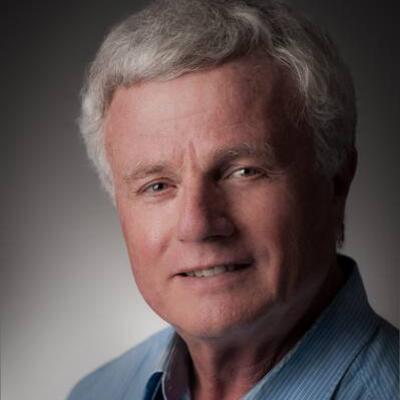Presidents column: ISES participates in two key partner meetings in September
Over the past few years ISES has established a number of key strategic partnerships with global organizations that support the rapid development and deployment of renewable energy technologies around the world. ISES serves in an advisory and decision support capacity in the governance of some of these organizations. During the week of 11-15 September two of our major global partners held meetings of their governing bodies in which ISES participates.
On 12 September, in conjunction with the Solar Power International (SPI) Exhibition and Conference held in Las Vegas, Nevada (USA), the Global Solar Council (GSC) held an Annual General Membership (AGM) meeting followed by its Board meeting. ISES became a founding Board member when the GSC was inaugurated at the Paris Climate Conference in December 2015. We have been participating in their quarterly board meetings ever since. The GSC is an association of national and regional solar associations and solar companies: besides ISES, association members include the U.S. Solar Energy Industries Association (SEIA), the Australian Solar Council (which was formed from the ISES Section of Australia), the Middle East Solar Energy Industry Association (MESIA), ABSolar/Brazil, the Asian Photovoltaic Industries Association (APVIA), the National Solar Energy Federation of India (NSEFI), and many others. A number of major solar companies, such as First Solar, Trina Solar, Jinko, and PV Cycle are also members. The GSC’s new Chief Executive Officer, Jodie Roussell, and the GSC Chairman, Bruce Douglas, who is also Chief Operating Officer of SolarPower Europe, ran the meetings. The AGM featured a global market dialogue consisting of short presentations on the status of solar energy development in various member countries. Jodie also previewed the GSC annual action plan for 2017-2018. We were privileged to have a short presentation at the start of the meeting by Abigail Ross Hopper, the CEO of SEIA, who outlined the process being undertaken by the U.S. Government to review the injury arguments submitted by Suniva and SunWorld attributed to low-cost imports of solar equipment in the U.S. market, the potential tariffs that could result from an injury ruling, and the impact these tariffs would have on domestic solar jobs.
The afternoon Board meeting focused on specific administrative and governance issues of the GSC. During this meeting ISES was elected to a second two-year term to the GSC Board. Many of the activities of the GSC, especially under their Taskforce for Jobs, Curriculum, and Training, are in line with the goals of ISES. I and others on the ISES Board are already working with Jodie on this Taskforce; plans are underway for the GSC, in collaboration with Student Energy, to hold a side event on 30 October in Abu Dhabi as part of the SWC2017/SHC2017 joint conference activities.
Immediately following the GSC Board Meeting I flew to Mexico City to participate in a panel discussion at MEXIREC (Mexico International Renewable Energy Conference) and the Renewable Energy Policy Network for the 21st Century (REN 21) Steering Committee. The panel, titled “Systems Thinking: How to Interconnect Sectors”, was moderated by Doug Arent of the U.S. National Renewable Energy Laboratory. Paolo Frankl, Head of the Renewable Energy Division at the IEA gave a keynote address on the emerging role of system thinking in the transformation of our energy system to renewable energy. His talk was followed by statements from all the panelists and questions from the moderator and audience. As stated in the background paper prepared for this panel, the idea of “system thinking” is to move beyond the traditional construct of renewable energy sources to a broader definition which includes supporting infrastructure such as transmission and distribution networks, supply and demand balancing strategies that include efficiency measures, as well as “sector coupling” and a wide range of enabling technologies. There was much discussion about whether the term sector coupling captures properly the notion of how a system approach to renewable energy can better meet our end use energy needs.
The REN21 Steering Committee meeting was held on 14 September. The Steering Committee has 50 members who represent national governments, NGO’s, Industry Associations, International Organizations, and Science and Academia (this is the category in which ISES’ membership resides). The primary governance of REN 21 comes from a 7-member Bureau, and elections for the Bureau members for the next two-year term were held during the Steering Committee meeting. Two representatives of the REN Alliance, Stefan Gsänger of the WWEA and Marit Brommer of the IGA were elected to the Bureau, which gives ISES, as a REN Alliance partner, some representation as well. The Steering Committee reviewed a number of documents during this day-long meeting, including the proposed REN21 work plan for 2018. Besides publishing the very popular annual Global Status Reports, REN21 plans to organize its next IREC, which will be held in South Korea in 2019, develop regional reports, continue work on its online Renewables Interactive Map, and organize a Renewables Academy later in 2018. The next meeting of the Steering Committee will be in Denmark in conjunction with the Clean Energy Ministerial in May 2018.
There was one very important announcement during the Steering Committee meeting: Ms. Christine Lins, REN21’s Executive Secretary, announced that she will be stepping down in March 2018. Christine has been a major force behind the many successes of REN21, and has also been a very strong supporter of ISES. She participates every year in an ISES webinar to present the latest GSR, and she will be a plenary speaker at our upcoming Congress. We wish her all the best as she enters this new chapter in her life.
